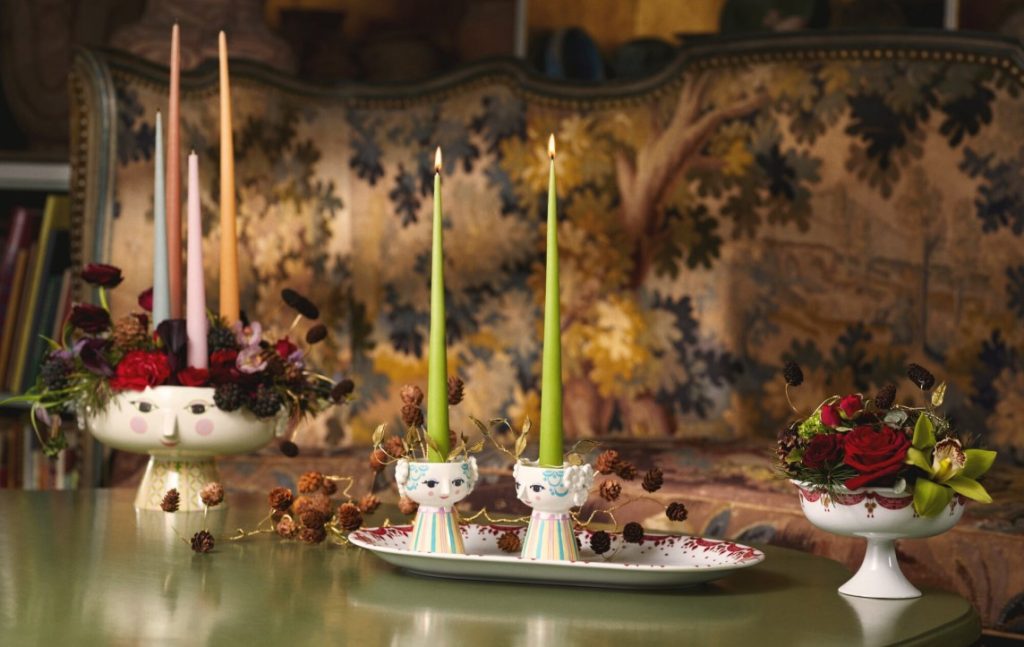Embrace Candlelight Safely and Stylishly: Tips from Copenhagen Imports in Texas and Arizona


The origin of candles dates to around 3000 BC, when ancient Egyptians burned the cores of reeds placed in melted animal fat. Over the millennia, candles have played a pivotal role in providing illumination, and have also attained symbolic significance through their use in holidays such as Hannukah, Kwanzaa, and Christmas. Beyond their practical and ceremonial uses, candles can also create an ambiance that is relaxing, festive, or romantic – imagine enjoying a good meal and thoughtful conversation with a loved one during a candlelit dinner or watching the bright flames of lit tapers flickering in your window on a dark night. If you’d like to introduce the glow of candles to your home this season, read on for tips on how to enjoy candlelight both stylishly and safely.
Though modern candles can come in any shape or form under the sun, three of the most popular shapes are taper candles, pillar candles, and tealights. Taper candles are taller and thinner, with a more traditional and elegant look to them. Pillar candles have a thicker diameter that gives them more stability, while tealights are small, short, metal-encased candles that have a variety of versatile uses.
Votives are a beautiful way to dress up your candles or style them for different occasions. Copenhagen carries the Snowball Votive by Kosta Boda to bring a touch of winter indoors, without the cold. According to the manufacturer, the design for this votive originated in 1973, when glass was blown directly into a snowdrift. As a result, the votive’s variegated surface allows it to refract light in an eye-catching effect. For a striking piece that can be used year-round, try the Delight Votive, with its jauntily angled shape, or try the Amour Votive to create a romantic ambiance in any room.
Candleholders are another great option to add elegance or personality to otherwise plain candles. Made by Danish design icon Bjorn Wiinblad, the Eva Candleholder features a whimsical smiling face and a “dress” in cheerful shades of yellow, blue, and pink. For a more modernist look, consider the Torg Candleholders, with their clean geometric lines and circular cutouts.
A lantern or hurricane-style lamp is an additional option for housing candles – with their enclosed glass design, these pieces provide the benefit of making it less likely for a candle to be accidentally touched or extinguished. Rosendahl’s Design with Light Lanterns feature a gently curved silhouette in either clear or smoked glass, a leather carrying handle, and the ability to be used both indoors and outdoors.
In a grouping with multiple candles, you may enjoy experimenting with different heights, widths, shapes, or colors of candles to add a pleasing sense of variety. Or, try pairing one or more candles with other accessories like small figurines, trinkets, and vases.
A popular choice is to create a centerpiece for your dining table with candles and foliage. Arrange the candles in a line or cluster and fill the spaces in between with your favorite seasonal greenery. For the winter, try real or artificial evergreen branches, holly sprigs, or pinecones. For spring or summer, flowers are ideal for adding pops of color and freshness to your table. Feel free to experiment with other elements like shells, gemstones, succulents, art objects, or whatever you have around to create a centerpiece that’s uniquely yours.
As a last tip, unscented candles are generally better for dinners, so the scents don’t clash with the food.
Importantly, no matter how you style your candles, remember to always keep safety in mind. According to the U.S. Consumer Product Safety Commission, around 85% of candle fires could be prevented by following three basic rules:
1. Never leave a lit candle unattended.
2. Never burn a candle on or near anything flammable, such as upholstery, drapes, bedding, carpet, or paper.
3. Keep candles away from children and pets and place them in areas where they are unlikely to be knocked over.
Additional pointers include:
• Always place candles on a flat, stable, heat-resistant surface.
• Trim the wick to ¼ of an inch before lighting. An overly long wick increases the chance of a candle flaring, dripping, smoking, or burning unevenly.
• Keep lit candles out of the path of moving air, such as wind or air conditioning, as a strong draft can cause a flame to ignite a nearby surface.
• Do not burn a candle for more than 4 hours at a time. Burning a candle for prolonged periods can cause it to produce smoke and soot, as well as causing its container to overheat.
• If a candle comes inside its own vessel (like a glass jar), do try to burn it long enough so that the pool of melted wax reaches out to the edges, provided all other safety measures are followed. Burning a candle for too short a time can cause it to only burn down its middle instead of its full width, shortening its lifespan.
Whether you’re hosting a holiday party or engaging in a calm ritual during a quiet night in, candles can add special feelings of brightness, merriment, or tranquility to your home. Begin by observing proper candle safety, and then add design accents to create arrangements that bring you joy.